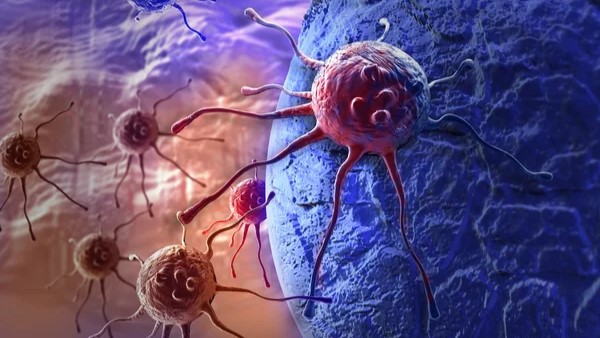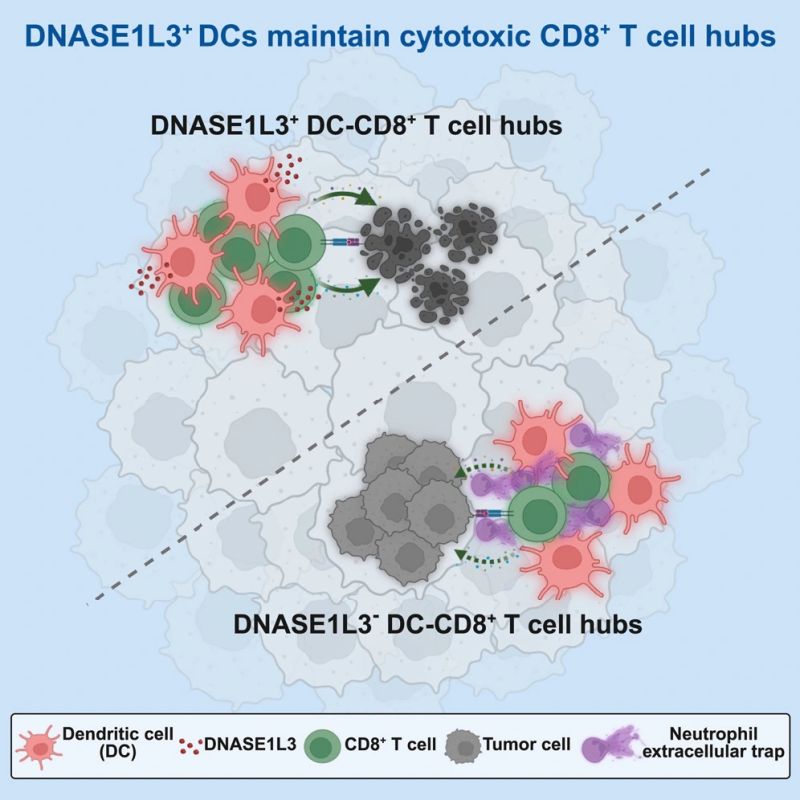
Himanshu Mishra: DNASE1L3-Driven NET Degradation Boosts Immunotherapy Efficacy
Himanshu Mishra, Microbiologist At Zydus Lifescience pvt Ltd Ahemdabad, shared a post on LinkedIn:
“DNASE1L3-expressing dendritic cells promote CD8+ T cell function and anti-PD-(L)1 therapy efficacy by degrading neutrophil extracellular traps.
CD8+ T cell exclusion and dysfunction in the tumor microenvironment (TME) are among the most challenging obstacles for anti-PD-(L)1 therapy. Here, we report that tumor-infiltrating dendritic cell (DC)-specific expression of the deoxyribonuclease, DNASE1L3, is positively correlated with favorable outcomes of anti-PD-(L)1 treatment in cancer patients. DNASE1L3 conditional knockout in DCs leads to enhanced tumor growth and diminishes anti-PD-L1 therapeutic efficacy by impairing infiltration and effector functions of CD8+ T cells.
Conversely, injection with DNASE1L3 promotes CD8+ T cell infiltration and reduces exhaustion in the TME, significantly retarding tumor growth and enhancing anti-PD-L1 response. DNASE1L3+ DCs can degrade neutrophil extracellular traps that suppress the spatial distribution of CD8+ T cells in tumors, enabling establishment of cytotoxic CD8+ T cell hubs in human cancers. Our findings reveal a role of DC in regulating intratumoral CD8+ T cells and identify DNASE1L3 as a promising target to improve anti-PD-(L)1 therapy.
Highlights:
- DNASE1L3+ dendritic cells predict better immunotherapy outcomes in cancer patients.
- DNASE1L3 loss in dendritic cells drives tumor growth via CD8+ T cell dysfunction.
- DNASE1L3+ dendritic cells maintain cytotoxic CD8+ T cell hubs by degrading NETs.
- Exogenous DNASE1L3 treatment enhances anti-PD-L1 therapy efficacy.”

More posts on OncoDaily.
-
Challenging the Status Quo in Colorectal Cancer 2024
December 6-8, 2024
-
ESMO 2024 Congress
September 13-17, 2024
-
ASCO Annual Meeting
May 30 - June 4, 2024
-
Yvonne Award 2024
May 31, 2024
-
OncoThon 2024, Online
Feb. 15, 2024
-
Global Summit on War & Cancer 2023, Online
Dec. 14-16, 2023
